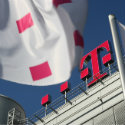Deutsche Telekom goes RDK's way
DT is tapping the open source Reference Design Kit as its global software platform for broadband gateways.

Giving a big lift to a software stack managed by three major cable operators, Deutsche Telekom has selected the Reference Design Kit (RDK) as its global software platform and its full range of broadband gateways.
RDK cut its teeth as a pre-integrated software stack for cable video devices (RDK-V), but has since become much more agnostic by expanding into broadband gateways and modems (RDK-B) for multiple types of access networks and service providers. RDK has also been adapted for connected cameras and other IoT devices supported by Bluetooth, Thread and Zigbee.
As for DT, the service provider will now use RDK as the default broadband software across its EU footprint of GPON, DOCSIS and DSL gateways.
DT said deployments of RDK software are underway as it looks to standardize device capabilities and telemetry across its range of broadband hardware providers.
"RDK provides us with a common way to control and manage our broadband device capabilities, telemetry, analytics, and apps across our EU footprint, enabling us to create a harmonized customer experience across different devices," Pedro Bandeira, DT's VP of product and new business, said in a statement.
The selection over options such as Prpl and OpenWrt marks a significant win for the RDK, an open source software stack managed by a joint venture of Comcast, Liberty Global and Charter Communications, which inherited that spot via its 2016 acquisition of Time Warner Cable.
RDK has been deployed on more than 80 million devices worldwide. Beyond Comcast and Liberty Global, other service providers that have adopted RDK include Atlantic Broadband, Claro, Cox Communications, J:COM, Megacable, Mediacom Communications, Melita, MEO, NOS, NOWO, PYUR, Rogers Communications, Shaw Communications, SFR (part of Altice Europe), Stofa, Telecom Argentina, Toya, United Group, Vidéotron, Vodafone, Vectra, Voo, VTR, WideOpenWest and Ziggo.
Deutsche Telekom's involvement will certainly push those device numbers up, as the operator has about 27 million fixed-network lines and 22 million broadband lines in service.
Related posts:
— Jeff Baumgartner, Senior Editor, Light Reading
Read more about:
EuropeAbout the Author(s)
You May Also Like












